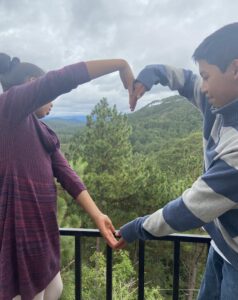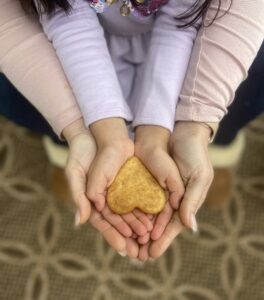
“I love you too” my voice sounded small and unfamiliar. I willed my heavy feet to take the last few steps out of the room and gently closed the door behind me.
I didn’t want to cheapen the word, to make it seem that love was something so casually given and then also lost. Who knew how long she would stay with us and the depth and effect of that pending loss. She had suffered and lost more in a decade than I had in my entire life. I didn’t want to be one more thing that she loved and lost but we were already in neck deep and it seemed inevitable.

Children need to know that they are loved, even those who may only be in their lives a short time. The truth is, we all need to know that we are loved, that we have value and that we belong. But these tiny broken and fragile hearts need to know it even more. They need to see and feel love in action. To know that their preciousness isn’t dependent on what they do but rather in who they are. It is the difference between surrender and success and a key component to resiliency. What a privilege and a great responsibility to be able demonstrate a safe and unconditional love to those who need it most.

What is it about love that it motivates us to be both brave and sometimes irrational? How is it that I every time I think I could never love more than I currently do, it miraculously multiplies again? This emotion that ties our hearts together through the highs and lows of our journey also helps give us hope.
Love requires both risk and sacrifice, and as I continue step into the lives of the children who desperately need it I can see the hope that it restores in both of us. Hope that as those three little words (along with my actions) take root and that hearts and minds begin to heal. Hope that there are better things ahead when love goes with you. Hope that the hard experiences haven’t canceled beautiful and happy ones. Hope that as we choose to love and to be loved we can make this wold a better place.
Yes, foster care may be temporary but the love that happens here is never lost. It is an investment that grows exponentially and whose dividends have the power to change generations.
There is no fear in love. But perfect love drives out fear 1 John 4:18



